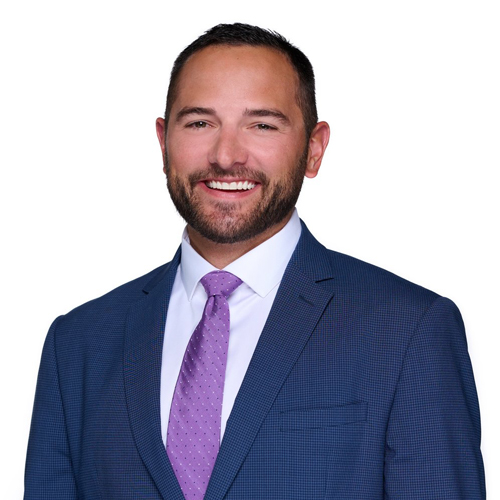According to a 2021 study by the National Association of Plan Advisors (NAPA), only 30 percent of consumers have a paid financial advisor. Of those that do, however, 95 percent say they believe it is worth the cost.¹
So, what keeps 70% of consumers from utilizing a financial advisor? According to the NAPA study and other experts, the reasons are varied and include a preference to do it oneself; a lack of knowledge about what a financial planner or advisor does; misconceptions about cost; comfort with web-based advisory platforms; and, more recently, an affinity for robo-advisors.
WealthGen Advisors would add another observation – those who simply don’t know where to start to assure good results and who fear making the wrong choice. This paper looks at this phenomenon, providing a few simple questions whose answers can provide guidance for Floridians when choosing the right financial advisor.
Choosing a Sarasota financial advisor should never be a “one-and-done” deal. It is critical that prospective investors research and interview multiple would-be partners.

Question No. 1: Are You a CFP®?
In any interview with a prospective Sarasota financial advisor, this should be the first question asked. While anyone can say they’re a qualified financial planner, a CFP® (Certified Financial Planner) professional can prove it, having met high standards of excellence in the field through rigorous education, training, and a commitment to putting their clients’ best interests first.²
The CFP® certification is one of the world’s most recognized financial planning designations, and CFP® professionals are college graduates who have demonstrated the knowledge, skills, and experience to examine their clients’ entire financial picture, as well as extensive training in ethics.
The CFP® exam is for the financial industry what the bar exam is for the legal industry, and it is one of the hardest tests in the financial planning industry,³ with a 60- to 65-percent pass rate.⁴ Being a CFP® is largely considered the gold standard in financial planning.
In fact, the more financial planning designations and certifications an advisor has, the better, as it shows they have successfully navigated advanced courses and graduate programs in any number of areas such as investment strategy, tax, estate, insurance risk management planning, and more. Multiple designations demonstrate that a financial advisor cares about what they do and have expended the time, effort, and resources to do it extremely well.
One of the single most important aspects of the CFP® designation, however, is that it entails a fiduciary duty, which is an extremely critical concept.
Simply put, a fiduciary is someone who manages money or property for someone else and is required by law to manage those assets exclusively to their client’s benefit and not their own. It gets muddy when an advisor or firm states that they act “in a fiduciary manner.” Good intentions are one thing, legal responsibility is another.
While many people may assume all financial advisors are required to operate in their clients’ best interests, that’s not always the case in reality. So, when looking for an advisor, the CFP® designation and its concomitant fiduciary duty is the starting point.
A fiduciary Sarasota financial advisor must meet a high ethical standard with the decisions they make in their client’s best interest. This requires the mitigation of conflicts of interest.⁵

Question No. 2: What Type of Financial Advisor Are You?
Fee structure
While it could be assumed that few customers would buy anything without knowing the price, the practice – surprisingly – does not always extend into the world of financial planning and advice, where there are concentrations of consumers who have no idea whether they are paying financial advisory fees of any kind or, if they are, how much.⁶ Among the reasons for this phenomenon is the fact that financial advisory costs sometimes can be cloaked within complex fee structures, and consumers don’t always seek clarity on the front end of the relationship.
There are three basic types of fee structures:
• Commission-based, in which advisors acting in a brokerage capacity are paid based on the financial products they sell the client.
• Fee-based (or hybrid), in which advisors earn a combination of fees and commissions.
• Fee-only, in which advisors charge an annual asset management fee, hourly or flat fee.
Understanding these fee arrangements is an important component of a consumer’s interviews with different – and different types – of financial advisors. While the impacts of these three fee structures are not always obvious, they translate into distinct advisory approaches that should reflect a client’s distinct needs, values, and expectations.
Transactional vs. Holistic
It is not uncommon for consumers to contact an advisor for a single transaction, such as buying an insurance policy or setting up an immediate annuity. While some advisors can execute that particular transaction, other advisors adopt a more holistic approach predicated on examining many different parts of a client’s financial framework, from tax and estate planning to investment and retirement strategies.
Though it can be hard for the average person to see how tightly interconnected their financial decisions are, it’s important to look at them as a whole. Only with a comprehensive view can an advisor be sure that each asset has a clear purpose and does not conflict with other holdings.
But it remains an individual decision, with the consumer deciding whether they simply want to fill a current transactional need through a broker or build a long-term relationship with a fiduciary that can build a holistic financial plan.
Holistic financial planning operates using a top-down approach and is more comprehensive and goal-oriented. Transactional planning is more narrowly focused.⁷

Question No. 3: How Much Experience Do You Have?
While a CFP® must have at least three years of experience, the anecdotal “sweet spot” is about 10 years in the trenches, (or for a Sarasota financial advisor, swamps!) unless the individual is part of a larger team. It could be argued, however, that 15 is a more significant marker.
That’s because financial advisors with 15+ years of experience had survived the worst economic downturn to that point since the Great Depression, negotiating extremely volatile markets and seeing how far losses in asset value can go. During that period, many advisors fell by the wayside, losing their jobs as companies folded, quitting the field, or retiring in the face of uncertainty and chaos.
The great financial crisis of 2007-2008, also called the subprime mortgage crisis, was triggered by the severe contraction of liquidity in global financial markets that originated in the United States as a result of the collapse of the U.S. housing market. It threatened to destroy the international financial system; caused the failure (or near-failure) of several major investment and commercial banks, mortgage lenders, insurance companies, and savings and loan associations, and precipitated the Great Recession of 2007-2009.⁸
This 10- to 15-year experience span incorporates those who are up to date on the changes that the reversal brought and who have cut their teeth in a new era of global finance that looks much unlike what went before.
In addition, for those seeking a long-term relationship with a Sarasota financial advisor, this timeframe indicates that an advisor is likely to be with a client for years to come.
With 12 years between crises, the lessons of the Great Recession and the COVID-19 pandemic call for advisors with a clear vision and diverse asset management.⁹

Question No. 4: What Is Your Process for Financial Planning?
In other words: How will an advisor do what they say they’re going to do?
The answer can go a long way in determining if a client and an advisor are a good fit and can work together towards maximizing benefits. A good advisor walks their clients through their process, outlining their core competencies and their approach to investing. Most consumers already do extensive research when hiring most service providers, and financial services providers could easily be the most important.
During the discussion, key decision points should include:
1. How deep does the advisor go? The depth of a financial plan can be as simple as a few sheets of paper or a fully comprehensive financial evaluation that looks at factors such as:
• Healthcare and Social Security, i.e., when to take benefits.
• Insurance needs vs. what a client already has in place, as well as cost analyses of policies to assure the client isn’t
paying too much.
• Cash flow planning – an important factor for anyone trying to decide if and when they can retire.
• Estate planning.
• Other factors important to the client.
Understanding the comprehensiveness of a planner’s process can be a window into their advice model. The more comprehensive, the more a client can be assured even small planning strategies are utilized, such as Roth conversions or recommendations on estate distribution.
2. What is the advisor’s communication strategy and does it match a client’s own? Regarding the latter, prospective clients should discern for themselves how they like to communicate about investing and financial strategy. Are they a “fire and forget” consumer? Do they need a lot of guidance? Do they wish to be contacted only when it adds value to the portfolio or relationship?
3. Prospective clients should find out with whom they’ll potentially be working. Is it the in-take person or an associate? Who is that associate and what are their capabilities? Will an advisor be accessible personally or will a client have to get in a queue on an 800 number?
4. Also key is whether the ultimate plan will be customized for the client or fit into a pre-set template of “similar” portfolios. If the initial meeting with an advisor includes a multi-faceted examination of different holdings, the advisor is likely demonstrating a more individualized approach.
5. Determine if they’ve invested in themselves with adequate facilities, ongoing education, and advanced technology. These factors may indicate the degree to which an advisor has remained committed to career development, understanding demographic changes, industry shifts, and the value of a professional appearance.
6. Finally, as the advisor goes through their process, a client should try to determine their level of passion for what they do. The amount of detail and expertise in an initial discussion can go a long way in demonstrating passion, but that detail and expertise should be fueled by a genuine excitement for the field and for meeting or exceeding a client’s needs.
Many unique factors like age or spending habits can impact an individual’s financial plan. An advisor’s process should consider those unique factors.

Question No. 5: What Is Your Investment Philosophy?
A guiding philosophy is important for any business. In Florida’s financial advisory world, large firms may leave it up to the individual associate, while smaller ones generally have overriding principles that extend wall-to-wall.
In exploring the investment philosophy of a financial advisor in Sarasota, a prospective client should expect to learn more about how the firm builds its portfolio and the factors that influence its portfolio construction principles. For instance, do they favor active or passive management, and why? Can they include examples? What are their preferred investment vehicles? Do they do more low-cost, passive investing during the growth phase of investments vs. the distribution phase? Do they have a defensive strategy? Are they “buy and hold” or momentum strategists?
In essence, these questions aim to discover the fundamental values that determine how an advisor makes decisions.
When a client is unsure what some of the technical financial jargon means, it’s important that an advisor be able and willing to clearly articulate them so they make logical sense to the client. After all, if a client can’t understand the advisor’s philosophy, how comfortable should they be trusting the advisor with their money?

The best strategy for a client is one that matches their personality, financial goals, and a core set of beliefs. Choose an advisor with a complementary investment philosophy.¹⁰
Resources
1. Why Consumers use – and Don’t Use – Financial Advisors, National Association of Plan Advisors, March 26, 2021,
2. The Standard of Excellence, CFP Board
3. CFP Exam 101: Everything You Need to Know to Pass the CFP Test, U.S. News and World Report, January 31, 2019
4. How To Study For (And Pass) The CFP Exam, KITCES, February 22, 2021
5. What is Fee-Only Financial Planning? The National Association of Personal Financial Advisors
6. Investors in the United States: A Report of the National Financial Capability Study, FINRA Investor Education Foundation, December 2019
7. What Is Holistic Financial Planning? Smart Asset
8. Global Economics: financial crisis of 2007–08, Britannica
* Mutual funds also are actively managed, meaning a fund manager makes decisions about how to allocate assets in the fund. ETFs, on the other hand, usually are passively managed and based more simply on a particular market index.
9. Here are key ways the coronavirus crisis differs from the Great Recession, CNBC, May 27, 2020
10. Investment Philosophies, Aswath Damodaran, New York University












